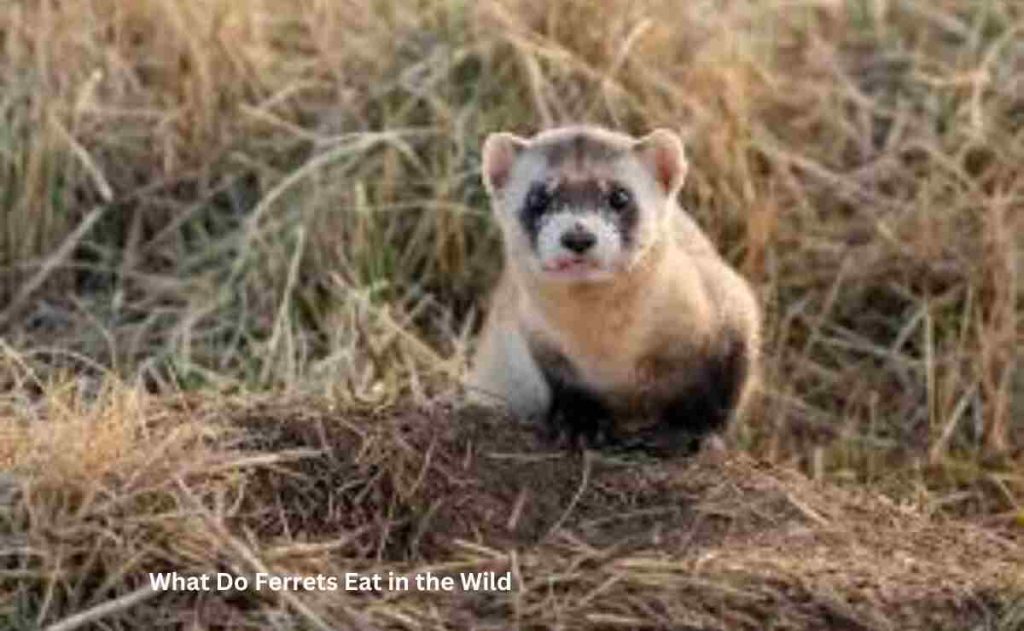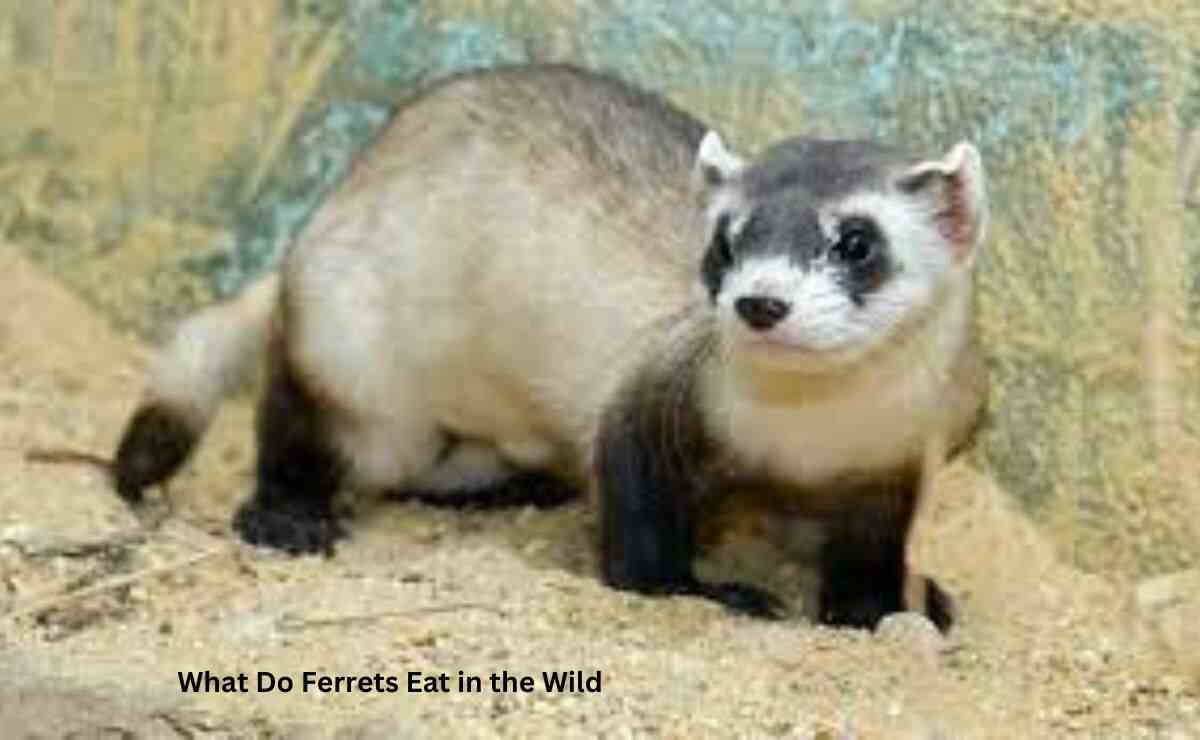Ferrets are an increasingly popular pet, but many people don’t know what ferrets eat in the wild. This article seeks to answer that question, providing useful information about the diet of wild ferrets.
With the help of scientific research, we will explore what ferrets typically eat in their natural environment, providing insight into the eating habits of these curious mammals.
What Do Ferrets Eat in the Wild?

When it comes to an understanding the dietary needs of ferrets, many people are unaware that what they eat in the wild is different from what they eat as domesticated animals. Knowing what do ferrets eat in the wild can help you better understand your pet’s natural diet and provide them with a more balanced, healthy lifestyle.
In the wild, ferrets are carnivores and primarily feed on small mammals such as rats, mice, voles, and rabbits. Ferrets also enjoy eating insects such as crickets and grasshoppers, birds, eggs etc.
Ferrets eat super worms and get useful nutrients. When available, ferrets may supplement their protein-rich diets with fruits or vegetables like carrots or apples. It’s important to note that while these foods provide essential vitamins and minerals for your pet’s overall health; they should not comprise the majority of their diet in place of proteins from mammals or insects.
How Do Ferrets Get Their Food in the Wild?
Wild ferrets depend on their natural hunting instinct and intelligence to find food, making them one of the most successful small carnivores in nature. In the wild, ferrets hunt and scavenge for food like birds, insects, reptiles, mammals, and plants. They are also known to consume eggs from nests or steal food from other animals due to their quickness and agility.
In order to effectively capture prey, wild ferrets use an array of tactics such as digging for burrowing animals, stalking slow-moving prey such as lizards, or chasing after rodents or birds. Ferrets also have a powerful vision that helps them spot potential predators and capture prey with ease.
Additionally, they are capable of forming caches (or hidden stashes) of food by burying it in shallow chambers underground so they can access it later during a time when food is scarce.
Do Wild and Pet Ferrets Eat the Same Food?
Ferrets are fascinating creatures, both in the wild and as pets. Understanding their diet is key to providing a happy and healthy life for your pet ferret. But do wild ferrets eat the same food as pet ferrets? The answer is not always simple.
In general, wild ferrets will eat a variety of small prey – from rodents to insects – that make up their natural diet. Pet ferrets, on the other hand, should have a more structured diet of specially formulated dry kibble supplemented with occasional treats like raw meat or hard-boiled eggs.
While there may be some overlap in what wild and pet ferrets can safely eat, it’s best to stick with foods designed specifically for pet ferrets to ensure they get all the nutrition they need without any potential risks from foraging in the wild.
What is a Ferret’s Favorite Food?
Ferrets are playful and curious, but they also need to be fed a nutritious diet. So what is a ferret’s favorite food? Ferrets enjoy eating high-quality meat-based kibbles, wet foods, treats, and snacks. They can also benefit from the occasional raw food such as cooked chicken or eggs. Some ferrets may even eat vegetables or fruits like apples or bananas in small amounts.
It is important to feed your pet ferrets quality foods that are specifically designed for their species. Many store-bought ferret diets contain animal proteins and other ingredients that provide them with all the vitamins and minerals they need for optimal health. It is also important to supplement your pet’s diet with fresh fruits, veggies, lean meats, and omega-3 fatty acids for an extra nutritional boost. With the right balance of nutrition, your ferret will stay healthy and happy.
What Kind of Human Food Can Ferrets Eat?
When it comes to ferrets, one of the most common questions asked is: what kind of human food can they eat? It’s important to know that while ferrets are both carnivores and omnivores and will eat a variety of foods, they should not be given just any human food.
Most people think that because ferrets are often compared to cats and dogs, they should be able to eat the same kinds of food. However, this is not true. Ferrets have unique dietary needs and require specific types of human-grade food in order for them to stay healthy.
Therefore, when deciding what kind of human-grade food your ferret can eat, you should only look for a high-quality cat or dog foods specifically designed for ferrets.
What is Poisonous to Ferrets?
Ferrets are amazing creatures who, unfortunately, have some pretty specific dietary needs that can be hard to understand. Knowing what is and isn’t poisonous to ferrets is an important part of pet ownership for their owners. For those curious about what could potentially harm their beloved ferret, there are a few things you should be aware of before feeding your pet.
It’s important to note that many everyday items such as chocolate and onions are toxic for ferrets; even some fruits like raisins, grapes, avocados, and vegetables can make them very sick if ingested in large amounts.
Additionally, certain types of human medication (such as ibuprofen or acetaminophen) pose a serious danger for ferrets. The best way to keep your furry friend safe and healthy is to stick with specially made food specifically designed for ferrets.
Conclusion
In conclusion, ferrets are unique creatures that survive in the wild by eating a variety of different food sources. While they primarily eat small mammals, they also feed on insects, birds, eggs, and fruits.
Understanding what ferrets eat in the wild can help us better appreciate their place in nature and provide them with proper nutrition when we own them as pets. As pet owners, it is our responsibility to ensure that our ferrets receive an adequate diet to maintain their health and well-being.
